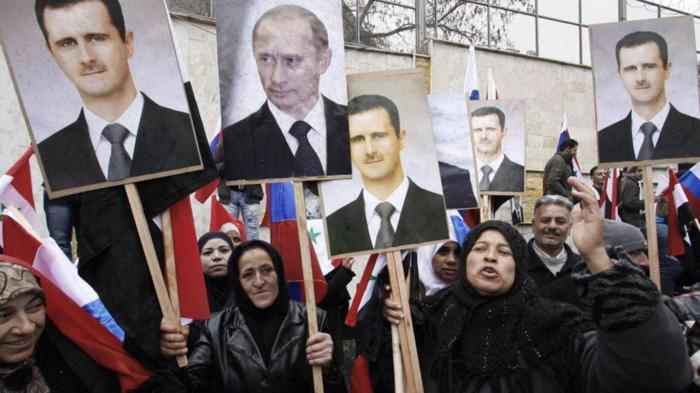Putin’s Syrian Gamble

By: Abbas Parvardeh
Summary: Russia's military engagement in Syria may create more extensive, yet less known, consequences; and if it does not bring about tangible results for Bashar Assad in the battlefield, it could eventually backfire, seriously shrink the possibility of a diplomatic solution, and push Syria deeper into the quagmire. Aggravating the situation is the fact that extraregional forces are focused on reaping their own benefits for themselves, and not solving the crisis.
Despite abstaining from military engagement, Russia used to be a key supporter of Bashar Assad throughout the last four years of the Syrian crisis, particularly in the UN Security Council. Shifts in power balance in Syria have convinced Moscow to step into the field, even if too late. However, Russia's engagement can upset the current equilibrium in Syria.
Washington, the so-called leader of the anti-ISIS campaign, will undoubtedly grimace at the presence of its traditional rival in Syria. Putin's likely success in his military gamble will invalidate the White House's claims of uprooting ISIS, lending credibility to hypotheses that Washington is merely seeking containment, and not eradication, of the terrorist group.
It is not only the US that is worried however. Other countries who have capitalized on Assad's overthrow will see their efforts in vain with Moscow's belated military intervention. Turkey is first in line. Failure of Erdogan's anti-Assad policy, along with increasing threats rising from terrorists' fleeing back into Turkish soil will have grave consequences for Ankara. In recent days, Turkey's border with Syria has been witnessing insurgents seeking refuge against Russia's heavy bombardments. International Jihadis that enjoyed Ankara's logistic and intelligence support are now going to return to Turkish border cities defeated and frustrated. Their presence in Turkish territory bears serious security and political risks for Erdogan who is also dealing with the problem of Syrian refugees and the PKK's renewed attacks. There are also Arab states led by Riyadh that have also spent billions of dollars in support of terrorists during the last four years. Recent developments in Syria can foil their efforts to topple Bashar Assad.
Russians had followed a 'remote control' policy since the start of the crisis in Syria, but they have now decided to make a bet on their military card. Vladimir Putin's calculus is clear: First of all, there is a growing perception that following the nuclear deal between Iran and the West, Washington will show more flexibility regarding the Syrian crisis, Tehran and Moscow will have a more powerful voice in solving the crisis, and the Syrian case will come to a conclusion. In that case, a short-term low-cost military engagement in Syria will help Moscow reinforce its position in negotiations and gain more concessions. Putin is also making use of its partnership with Iran, Iraq, and Syria to bolster its position against the US and advance its interests in other cases, particularly Ukraine.
Moscow's intervention can help tip the balance when putting an end to the cycle of violence in the Syrian crisis has turned into a formidable task thanks to the unreasonable insistence of a number of actors to foreign insurgents. The powerful Russian army needs meticulous planning for both its air and ground attacks, and also for control of recaptured territories by the Syrian army; otherwise, a one-time military intervention with no long-term plans will only provide terrorists with enough time to reorganize and return. Moscow will have wasted its winning card in Syria, and also the Middle East in that case.
However, Russia's military intervention in Syria may have one grave consequence, and that is taking away the chance of a diplomatic solution. The Russian army's firing of Cruise missiles into terrorist-controlled territories from the Caspian Sea is an unprecedented measure which may turn into a precedent in future cases, and cause militarism to override diplomacy. After the failure of the anti-ISIS alliance and its air raid campaigns, and the problems Turkey created for itself by intervening in Syria, observers expected that Ankara would take a diplomatic step towards solving the issue. Nonetheless, it seems that diplomacy has taken a back seat for now as it cannot maximally serve the interests of the involved actors. The problem is that political developments are not always predictable, and it is not certain if diplomacy could remain an option in the future of the Syrian crisis.
* This piece was originally published in Iranian Diplomacy Persian. Abbas Parvardeh is a Middle East affairs analyst.
Translated by: Ali Attaran

